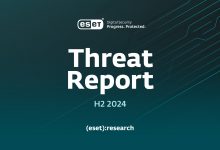The hacker group NoName ransomware has continued its spree of cyberattacks, this time targeting three prominent firms in Italy: CNS (Carta Nazionale dei Servizi), Linate Airport, and Malpens Airport.
While the hacker group claims responsibility for these attacks, critical details such as the extent of the data breach, compromised data, or the motive behind the NoName cyberattack remain undisclosed.
Potential Implications
The choice of targets by NoName raises concerns due to the potentially far-reaching implications. CNS (Carta Nazionale dei Servizi), a key entity in Italy’s digital identity infrastructure, being targeted by the NoName cyberattack could lead to disruptions in crucial government services, and identity verification processes, and potentially compromise sensitive citizen information, posing a significant risk to national security.
Linate Airport, one of Italy’s busiest airports, is being targeted by a NoName cyberattack that threatens to disrupt air travel operations, leading to flight delays, cancellations, and logistical challenges for passengers and airlines. Moreover, the breach of airport systems could compromise aviation security protocols, raising fears of potential safety breaches.
Malpens Airport, another major aviation hub in Italy, falling victim to NoName cyberattack could have similar ramifications as Linate Airport. Disruptions in airport operations at Malpens Airport could impact both domestic and international travel, leading to economic losses and tarnishing Italy’s reputation as a reliable travel destination.
Furthermore, the potential breach of sensitive airport data, including passenger information and security protocols, could pose serious security risks and undermine public trust in airport security measures, necessitating comprehensive security audits and remediation efforts to mitigate potential vulnerabilities.
However, upon accessing the official websites of the targeted companies, they were found to be fully functional, casting doubt on the authenticity of NoName attack claims. Whether this is a mere tactic to garner attention or if the hacker group harbors a different motive remains unclear, awaiting official statements from the targeted companies.
Previous NoName Cyberattack Claims
This is not the first instance of NoName targeting multiple organizations. Earlier in 2024, the group claimed responsibility for a series of cyberattacks across Ukraine, Finland, and the USA. The attack specifically targeted eight organizations, including PrivatBank 24, Credit Agricole Bank, MTB BANK, and others, indicating a coordinated and widespread cyber assault.
In Ukraine, the NoName ransomware group intensified its attacks on government websites and critical institutions, impacting organizations such as Accordbank, Zaporizhzhya Titanium-Magnesium Plant, and the State Tax Service. The group’s alleged Russian affiliations add a geopolitical dimension to the cyber onslaught, highlighting the increasingly complex nature of cyber warfare.
In Finland, NoName’s cyberattacks have targeted critical sectors, including the Energy Industry Association and Technical Academic TEK, representing technical professionals and engineers. The assault extends to Finland’s legal infrastructure, with Oikeus.fi, the legal information portal, becoming a target. These attacks underscore the hacker group’s intent to disrupt key sectors and infrastructure vital to national interests.
The recurring NoName cyberattacks indicate the pressing need for enhanced cybersecurity measures and international cooperation to combat cyber threats effectively.
Media Disclaimer: This report is based on internal and external research obtained through various means. The information provided is for reference purposes only, and users bear full responsibility for their reliance on it. The Cyber Express assumes no liability for the accuracy or consequences of using this information.





